Fact is, chief executive officer Sergio Marchionne believes natural gas engines are a better choice for cutting greenhouse gas emissions, because they are less expensive to produce and sell than other new technologies.
Even the latest engine developments can account easily for nat-gas, like the Scuderi split cycle with air hybrid, and the Cyclone external combustion engine that will be making a run at the land speed record with a steam engine.
Specifically, electric cars have many obstacles to successfully compete in the market today. The greatest is price. The Chevy Volt and the Nissan Leaf, for example, both carry hefty price tags and require government subsidies. Likewise the new Prius plug-in is in the mid $30k. Furthermore, all together they have barely sold 5,000 units this year thus far; and gasoline is not cheap.
Battery technology using lithium-ions is the root cause of the expense; not to mention, access to charging stations and the time necessary for recharging are key issues for the electric car, whether full electric or extended range.
On the positive front, the U.S. market is ripe for natural-gas engines after becoming the largest natural gas producer in the world last year. Newly tapped reserves in the Marcellus Shale field alone have boosted gas reserves and driven prices lower.
In a separate article via GasandOilNews.com at the time of the NAIAS 2011 in Detroit last January, Constantinos Vafidis, of Fiat’s transmission and hybrid research center in Italy, was quoted as saying, “Natural gas is very suitable for the U.S.” He said the fuel is especially appropriate for “public services and goods transportation, where vehicles are refueled from a central base.”
Amid the research, the U.S. presently ranks 14th in natural gas engine sales. Italy, Fiat’s home country, ranks sixth, while the number 1 ranking goes to Pakistan, with over 3,000 fueling stations for 2.3 million natural gas vehicles.
While General Motors (NYSE: GM) and Toyota (NYSE: TM) are heavily invested in electric and hybrid technology, Fiat’s experience would allow them to transfer nat-gas cars easily to the American market.
One would think in light of the high cost of oil, it would be a mandatory strategy for America to switch to natural gas. Fiat, in this writer’s opinion, should lead the natural-gas car market in America, not because it’s far behind in the electric vehicle sector, but because it is far ahead of the competition in natural gas as part of a viable, dual-fuel market.
In fact, I wrote last January from NAIAS that Fiat is no slouch when it comes to automotive technology. Witness the common rail diesel technology, which it sold to Bosch during a financial crisis. Fiat also has ownership of the Multiair system, which it licenses it to other manufacturers or provides entire engines; some which will show up on Chrysler vehicles.
According to an earlier Bloomberg report, Fiat is deemed the market leader in Europe in natural-gas engines, with an 80 percent share of methane-powered cars and 55 percent of light commercial vehicles.
While some say the lack of nat-gas stations is an infra-structure challenge, so are recharging stations for electric-car batteries; perhaps more so. Fact is, there are already 1,300 stations in the U.S. for the 110,000 vehicles using natural gas, according to the International Association for Natural Gas Vehicles. That compares to 160,000 gasoline stations, according to the latest stats from Petroleum Marketers Association of America.
Full Disclosure: At time of publication, Sherosky, creator of the auto sector charts for TN, is neither long or short with the mentioned stocks, though positions can change at any time. None of the information in this article constitutes a recommendation, but an opinion.
-----------------------
About the Reporter: After 39 years in the auto industry as a design engineer, Frank Sherosky now trades stocks, futures and writes articles, books and ebooks like, "Perfecting Corporate Character," "Awaken Your Speculator Mind", and "Millennial World Order" via authorfrank.com. He may be contacted here by email: [email protected]
________________________________________________
Additional Reading:
T. Boone Pickens touts natural gas vehicles in Washington, D.C.
Ram Trucks with natural gas could set a new trend in America
Fiat has tech savvy to lead America into natural-gas cars
Auto sector stocks follow Dow Jones in major market sell-off
GM stock sale by U.S. gives taxpayers the loss
Higher break-even price for Saudi oil sets new normal for auto fuel
China sends clear message it will protect its own car manufacturers
Set Torque News as Preferred Source on Google

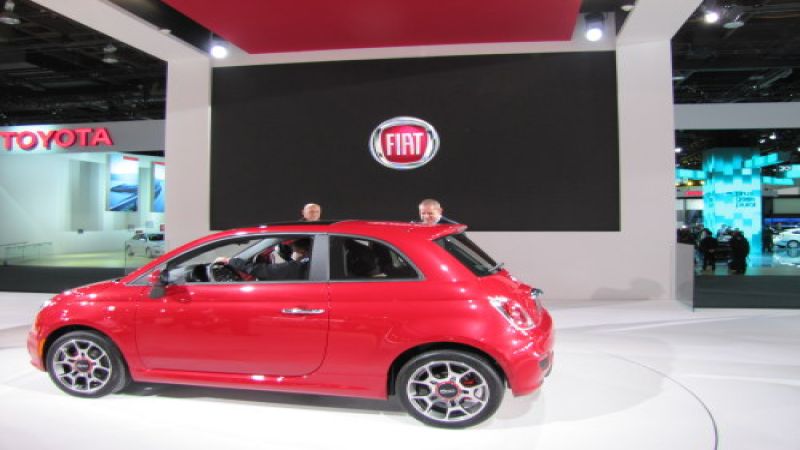





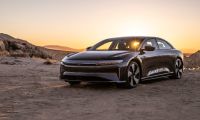
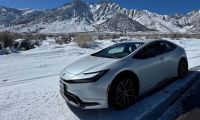
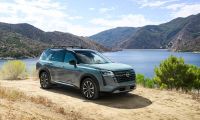
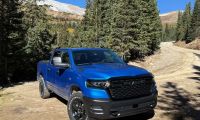
Comments
Little investment needed by
Permalink
Little investment needed by big car companies to convert cars to NG. Any combustion engine can be converted to run on either gasoline or natural gas.
It is politics and interest groups (big oil) that hinder use of NG and causes our trade deficit problem
the most comprehensive and
Permalink
the most comprehensive and concise resource on the web to aid in your transition to natural gas-based vehicles. ShopNGV.com has all the tools you need to effectively:
Buy new NGV's
Buy Used NGV's
Purchase parts for your NGV
Convert to a NGV
Learn about NGV's and CNG technology
Sell your NGV Online
NGV Insurance Quotes
News, forums, photos, videos and more....
Deciding to transition to a natural gas vehicle may seem like a daunting task. However, with the information we offer at ShopNGV.com, your transition will be smooth, and your decision an informed one. As with any vehicular purchase, consideration of finance options, insurance packages and automotive repair rates are of importance as well, with this information specific to the area in which you reside. Navigate our site's many resources to research your transition. Explore our blog postings to find out what others are saying in your area, or ask questions of your own. Visit our FAQ page to find commonly asked questions and their answers, or connect with others on Facebook to find others with interest in natural gas-based vehicles. Your decision to transition to a natural gas-based vehicle is the first step. Let ShopNGV.com be your first resource to help with every question that may follow thereafter.